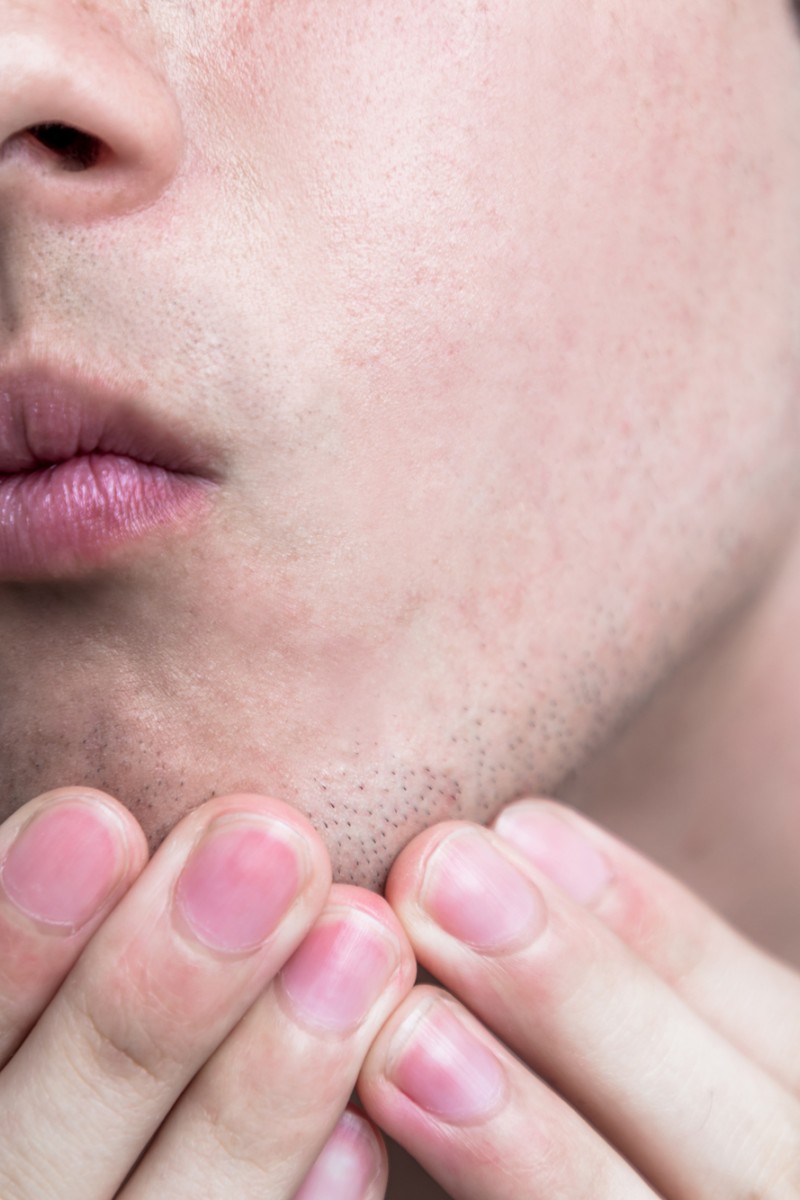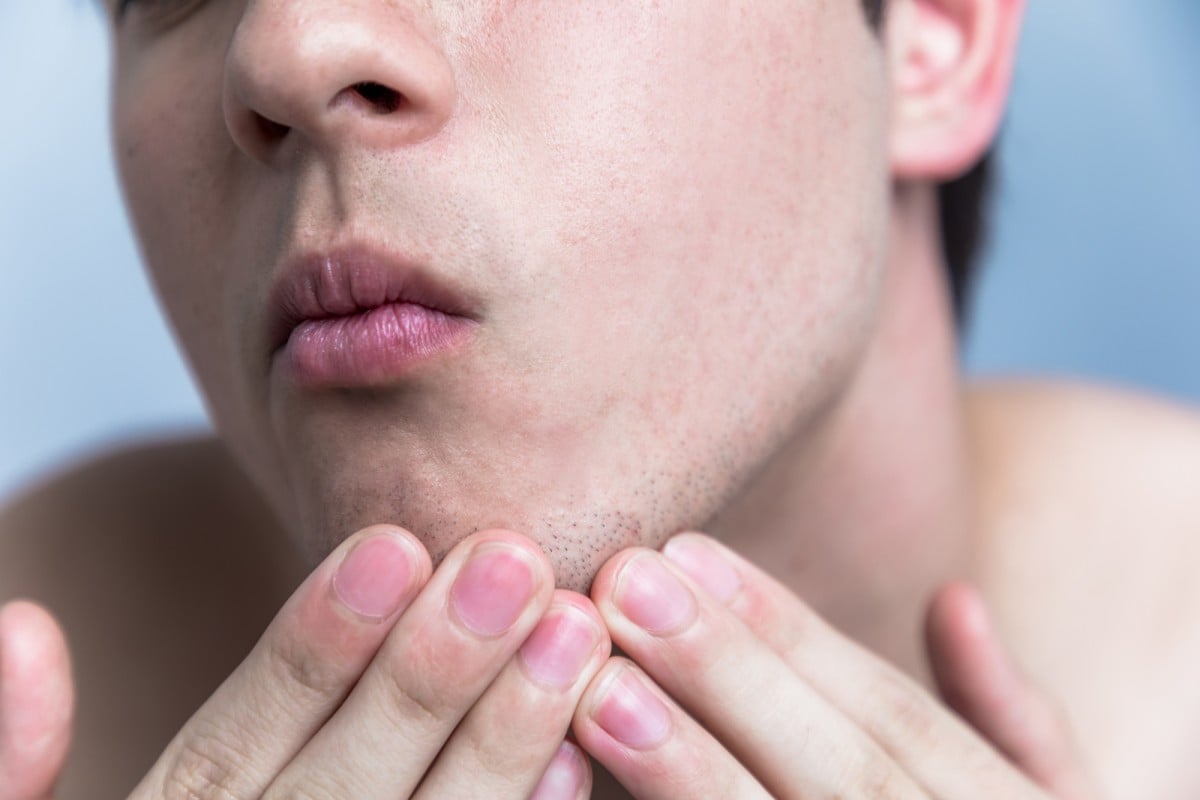
Basic skincare guide for guys and beginners: protect your skin, fight acne, and feel good
- Here's your 101 on how to keep your skin healthy and as blemish-free as possible
- Having good skin can boost your confidence and make you feel better about your looks

If you're worried about acne, your skin feels dry all the time, you get super oily, or you just want to take better care of the face you show the world, keep reading. Because skincare isn't just a thing for girls. Why? Well, because it's understandable that anyone might feel self-conscious when their face is covered with pimples or is too dry or oily, and it's important to know how to protect your skin from the sun. That has nothing to do with gender, and you're not being "girly" for wanting to look your best. (Although, why being "girly" is an insult is still beyond me.)
So, without getting too complicated, here are some basic skincare tips for guys - or, indeed, for anyone who might be new to this. But, to be clear, this doesn't guarantee you'll be acne-free, if that's your problem. Skin issues is just something a lot of us will have to go through. But keeping your skin healthy and clean will help it not be worse than it should be.
The best sunscreen to protect your skin
1. Cleanse
You skin has to deal with a lot on a daily basis, and for young skin it's super easy for your pores (teeny tiny holes on your skin) to get clogged up with oil, dead skin cells, or just the grime of living in a city like Hong Kong. To keep it from accumulating gunk that leads to acne, it's important to cleanse your skin twice a day: in the morning and at night.
If you've never used a cleanser before, use one that's gentle and made for sensitive skin. But first, you need to wash your hands - no point cleaning your face with dirty hands. And then splash your face with water, squeeze a blob of cleanser onto your fingers the size of a Hong Kong 10 cent coin, rub it between your fingers and then massage it all over your face. If you don't know how much you should scrub, just do 10 circles each over your cheeks, forehead (up to hairline), chin, nose, and jawline; pay extra attention to the sides and tip of your nose, but avoid the eyes. Thoroughly rinse off the cleanser with water until you can't feel it on your skin anymore and pat, not rub, your face dry with a clean towel.
Level-up tip: Instead of rinsing off the cleanser, you can use a soft damp towel to gently wipe off the product. The fibres of the fabric will gently exfoliate the skin. (In case you're not familiar with the term, exfoliate is like digging out the gunk from your pores.) Just make sure you wash and wring the towel out every time after you use it, to keep it clean. Use your judgement and change to a new towel when the one you're using is starting to look too worn out.
A good cleanser goes a long way. Photo: Shutterstock
2. Moisturise
You should moisturise your skin right after you've cleased it. So don't go off and scroll through Instagram for 30 mins and then moisturise because your skin starts feeling dry. Moisturisers not only help hydrate the skin, it also acts as a barrier between your skin and external elements like dust, pollution and grit. So applying it right after it gets cleaned only makes sense.
Same with the cleanser, get a small amount onto clean fingers and massage it into the skin. Use enough to cover your entire face, and also down your neck. Usually, about a blob about the size of your thumbnail should be enough. Be aware that sometimes skin gets oily because it's dehydrated, and your skin produces more oil to condition itself; so don't buy into "oily skin must use a lighter, gel moisturiser" myth. You need to understand why your skin is oily so you use the right kind of moisturiser for it. If that's your skin type, yes, use a moisturiser made for oily skin. If it's because you're dehydrated, drink more water, and also choose a moisturiser that's more a lotion.
Level-up tip: Ideally, you'd have two moisturisers: one for day with SPF, and one for nighttime without SPF. It's important the one you use at night doesn't have any because the ingredients used to protect your skin from the sun can actually clog your pores, so you want to give your skin a break from those ingredients for half the day.
Important: Every skincare product has an expiry date. Ingredients have a shelf-life once it's opened because it inevitably comes into contact with oxygen, which changes and affects the product.
The way to tell whether something is expired is to look for this symbol on the product, which is usually right at the bottom after its list of ingredients. The number indicates how many months the product can last after it's been opened, so use a Sharpie to write on the product the date it was opened, and you'll know when it expires.
Top tips for healthy, glowing skin
3. Lip-care
We often forget, but our lips are covered in skin too, and that skin can also get dry or damaged by the sun. Fom a purely aesthetic point of view, chapped lips are really distracting when you're talking to someone, (sorry! They are!) but, also ... no girl wants to kiss chapped lips. So get into the habit of keeping a plain, non-scented lip-balm in your pocket, and just glide it over your lips every couple of hours. You'll never experience the pain of lips splitting open from the cold in winter again.
Level-up tip: To keep your lips extra soft, mix 1/4 teaspoon of sugar with a dollop of Vaseline and rub it gently all over your lips, and then let it sit there for ten minutes before wiping it off and applying your lip balm again. Do this once a week.
Extra steps
Exfoliate
Even when you cleanse and moisturise daily, your pores will still get clogged up eventually. Invest in a gentle exfoliating cleanser and using it once a week at night instead of your regular cleanser can help clean out your pores regularly, and prevent the build-up that leads to acne.
Exfoliate once a week to prevent build up. Photo: Shutterstock
Masks
Depending on your biggest skin problem, putting a mask on your face once a week will help keep those problems at bay. What's a mask? It's a skincare product that you put on your face after you cleanse, which you leave on for about ten minutes and then wash off before putting on your moisturiser.
So if you're really dry, a hydrating mask will really help. If you don't want to buy an extra skincare product, honey on the face for ten minutes will work just as well. If you have issues with acne, a soothing or detoxing mask will help. Something with aloe vera will help calm the skin, or something with tea tree oil will help reduce the bacteria that causes acne.
Note: Tea tree oil is very potent and should never be used on its own.
